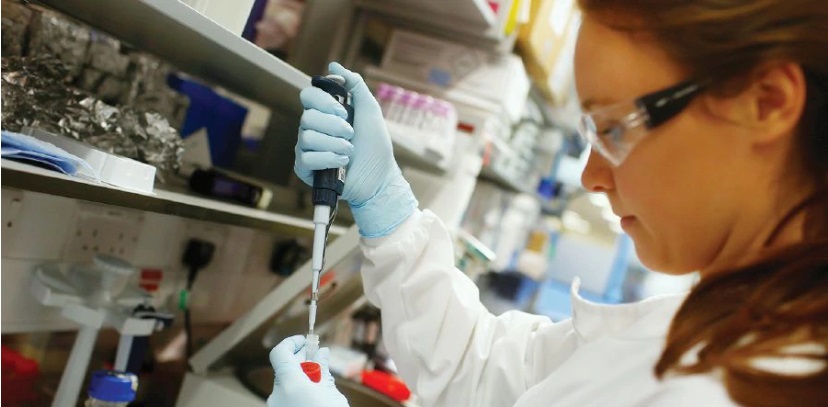EXCEPT for the oil-rich countries on the Arabian Peninsula, the rich, industrialised countries of the West and Asia all owe their good fortune to their mastery of science, technology and innovation (STI).
Indeed, with few exceptions that prove the rule, a nation’s economic prosperity is determined less by the richness of its natural resources than by the rich ingenuity of its human resources.
Wisely, therefore, investing in STI has been and will continue to be a cornerstone of Malaysia’s economic strategy for decades.
Growing up in a multicultural and multireligious country like ours, however, influenced and moulded over centuries by the movement of seafarers from ancient civilisations in China, India and the Middle East, I have always been conscious that in this modern age, balanced progress is required ever more so.
I am often reminded by Distinguished Professor Datuk Shamsul Amri Baharuddin, the founding director of Universiti Kebangsaan Malaysia’s Institute of Ethnic Studies, that when all is said and done, the survival of this country hinges on the ability of our various communities to come together to form a united nation. No amount of technological advances could ensure peace and prosperity if we, the citizens, are at loggerheads.
Sixty-one years after Merdeka, this nation is still “a work in progress”. What we are going through at present, according to Shamsul, is a state of social cohesion. What we need for a prosperous and inclusive society is true national unity, notwithstanding our ethnic and cultural differences.
“Social cohesion,” he says, “is a situation where there is peace, stability, prosperity and wellbeing in a society, specifically one which is multi-ethnic, because there exists a strong social bonding built over many years” of co-existence.
To help us achieve national unity there must be greater understanding among our diverse communities, facilitated by the behavioural sciences in moulding our future generations to have a stake in this blessed country.
Our emphasis on the mastery of science, technology, engineering, mathematics and medicine (STEMM) is essential in light of the explosion of advanced technologies that one would anticipate with the advent of the Fourth Industrial Revolution.
Many observers believe, therefore, that STEMM can and should remain the bedrock of our science-driven socio-economic development. The growing view is that our children’s education needs to be completed with a sense of national purpose or “soul”.
As Professor Tan Sri Dzulkifli Razak, former vice-chancellor of Universiti Sains Malaysia and the 14th president of the International Association of Universities eloquently expressed it: “Science needs to find its roots once again because STEMM is no longer able to bridge meaningful dialogue with religions, ethics, arts-oriented disciplines such as humanities, and management. STEMM must be widened to allow for the streaming of religions, ethics, arts and management as its integral support.”
Some scholars have termed this complementary set of disciplines HASS — which stands for the Humanities, Arts and the Social Sciences.
This notion has been around for some time, but, it has been gaining traction now given the challenges faced by countries aspiring to meet the 2030 Development Agenda set by the United Nations and the fact that science alone can’t solve many of the problems the world is facing today, which are often cross-sectoral and multidisciplinary in nature.
Increasingly, countries are seeing the value of HASS in research allocation. For example, in Canada — a diverse, multicultural country like Malaysia — the national government will reportedly invest C$925 million (RM2.8 billion) over the next five years not only in science and health, but also in HASS research. The Canadian budget also includes C$275 million (RM844 million) for interdisciplinary and high-risk research to be administered by the Social Sciences and Humanities Research Council (SSHRC).
Along with Canada’s health and science-based funding agencies, SSHRC provides special funding schemes to support STEMM and HASS interdisciplinary work.
These initiatives not only provide strategic funding to support top researchers, but attest to the value of the HASS disciplines in full partnership with STEMM.
These initiatives are part of Canada’s focus on mobilising the value of science and technology, which the government recognises cannot succeed without a simultaneous and clear focus on the human, cultural, and creative aspects of modern society.
It is, therefore, timely, with a new government in place, for us to review our education policy to incorporate and integrate STEMM with HASS so that a new breed of citizens can be nurtured to take on the challenges of tomorrow.
Research allocation to our universities must now reflect a balanced emphasis on both sets of disciplines.
What is needed is to inculcate a critical mindset among our young people so that their minds can be liberated and nimble enough to innovate new products and processes to thrive in the world of the 21st century.
Zakri Abdul Hamid is joint chairman of MIGHT and chairman of the board of directors of Universiti Malaya

